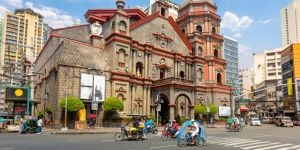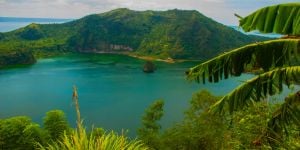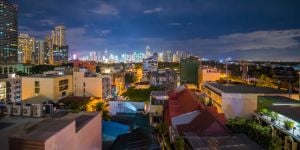Checklist (first post)
Last activity 20 January 2021 by coach53
977 Views
19 replies
Subscribe to the topic
Post new topic
Hey all,
I've been looking at retiring overseas for a couple of years and it's getting close to that time (once travel restrictions are lifted).
The sheer amount of things one accumulates over a few decades is staggering, on top of the issues of dealing with a home sale and vehicle sales etc.
I was curious if there was a spreadsheet style "checklist" of things that commonly need to be attended to, starting pre-move, move, post move.
I just have this horribly nagging feeling that there are a ton of things I haven't thought of, yet my forum browsing and video watching hasn't really yielded anything of substance
Thanks and hello 
Ike
Ikeprof wrote:Hey all,
I've been looking at retiring overseas for a couple of years and it's getting close to that time (once travel restrictions are lifted).
The sheer amount of things one accumulates over a few decades is staggering, on top of the issues of dealing with a home sale and vehicle sales etc.
I was curious if there was a spreadsheet style "checklist" of things that commonly need to be attended to, starting pre-move, move, post move.
I just have this horribly nagging feeling that there are a ton of things I haven't thought of, yet my forum browsing and video watching hasn't really yielded anything of substance
Thanks and hello
Ike
Hi and welcome to the forum, perhaps you could introduce yourself formally in "new members" so we get a feel for your situation, what country you are looking at to retire instead of "overseas", if the Philippines, have you travelled or spent time here here? I can't offer and never bothered with spreadsheets but simply boots on the ground for many many years and lots of reading/research and listening to other expat experiences and wisdom/mistakes/successes.
Example: Aussie here, worked and lived in PH. for a couple of years from 9 years ago, property and businesses in Oz, ex wife and children there, retire? At 55? Took 5 years of planning but honestly those 5 years put more money in the bank, increased assets and almost doubled my superannuation,,,,, no pension for some people in Oz,,,,,,,,,, but I gained one heck of a lot of knowledge from research and chatting with others on expat sites, only an opinion but like most we research, we do the boots on the ground thingy, climate, medical, smells, dogs, goats, first world county v PH. with technology, civil or acceptable rights and laws, availability of basic products that we//////// as westerners expect,,,,,, Philippines? Don't hold your breath but alternatives and occasionally are available with some research,,,,,, tinned beetroot, the list is endless.
So here we own our house like most and have a very comfortable life for AU 1,700 per month,,,,, when we lived in Oz it was over 4 times the cost. The 2 or 4 week holiday in Oz is now multiple holidays in or out of PH,,,,,,,,,,,, until C-19.
Shipping/moving personal belongings to another country is for another post and requires lots of research but the info is here if you search. We shipped a container full as mostly was not available here.
OMO.
Cheers, Steve.
If your are looking to the Philippines as your retirement destination unless you are wealthy and can afford to ship your household goods to a pre determined location in the RP, I would say that what you need can be found here with the exception of clothing for the big and tall. That is scarce, though there are some very good tailors here for shirts and shorts.
House hold appliances, décor, furniture and tools are readily available here from a wide variety of sources both online and at retail outlets. So bringing them along will probably cost you about as much as purchasing them here.
Computers, particularly laptops are more expensive than in the U.S. so you may want to bring yours along with you. If you check the power supply most will work on 110v or 220v. The Philippines and the U.S. both are 60Hz with the RP being 220v
What type of visa are you looking to apply for when the country re-opens itself? If you are not married to a Filipina with Philippine citizenship, then your options are limited to a quota visa (very few are issued), a 9a tourist visa, an SRRV (Special Resident Retirees Visa).
If try to obtain a SRRV visa you will need to have your needed documentation Apostilled (stamped) in the states prior to moving to the RP.
In any case, it would be wise to bring your birth certificate, divorce papers, your drivers license, etc.
How do you plan on banking and transferring your needed funds to the RP?
Opening a bank account here can at times be a little tedious, though it seems to depend on what branch of your chosen bank you are going to. Some branches may turn you down, while another welcomes you (and your money) with open arms.
We have our funds in a US bank and transfer only what is needed to our dollar account in the RP.
At that same bank we also have a Peso account that we use to pay our bills online through the bank, very helpful.
What are your needs and wants? The more rural you get, the less services and creature comforts are available.
It is not hard to find a place close to malls, hospitals, the airport and recreation while still being in a quiet country setting as we are.
Wherever you decide to lay your head, rent first. Get to know the people, the culture, the lifestyle, availability of services, etc., before you consider something more permanent like building a home.
Many areas of the RP while beautiful are also disaster prone, particularly when it comes to typhoons. The Pacific coasts in the Visayas and Luzon seem to get hit often, while the South China sea coasts are relatively calm.
Many areas are flood and earthquake prone, choose carefully.
Utilities.
The area we live in is served by Meralco power and the service has proven to be very dependable with the only long term outage (two weeks), was during typhoon Glenda that took out a main trunkline. Considering the damage done, it was amazing that it was restored in only two weeks.
There are many power companies in the RP and brownouts are common in a lot of areas.
Internet:
Internet is not the best in the RP and in many places it's just plain horrible.
Water: In many areas water is supplied in varying degrees from good to bad including low pressure problems to no water during certain times of the day. Check first. If you're rural you may have a well, no power no pump.
Medical services:
Some areas have hospitals that expats will give good marks to. Some are not places where you want to put your life in their hands. Do your research.
Dental:
In our are we have dental services available in offices with equipment better than my dentist had in the U.S. The skill of the dentist and the equipment vary greatly.
Transportation:
If you plan on using public transport, it is cheap though cramped and in the case of most tricycles, just plain uncomfortable.
Cars here are generally more expensive that the states and used vehicles on the cheap are most often scrapyard candidates. If you have the budget for a new vehicle you should be good to go with service and warranty. If you choose to purchase used, deals are out there, though be very careful. We have purchased used vehicles without issue, though in looking we first ask if they as casa (dealer) maintained with paperwork. If the answer is no, we moved on and said thanks anyway.
Taxis are available in most urban areas, though you being a foreigner makes you easy pickins for the scammers. No meter, no license listed on and in the vehicle, No permit displayed with the driver name and picture, then find another cab. And sharing a cab with someone you do not know is also a bad idea.
Foods:
If you like western food, it is available for a premium in some areas from retailers like S&R (like Costco) or local foreign owned delis. In rural areas, you eat what the locals eat.
Fresh veggies and fruit are readily available.
Medicine:
We have been able to get what medicine we need from Mercury Drugs or Watsons Drugs. Two of the largest chains in the RP.
If you have need of a specific med, it would be a good idea to check first before you settle into a place.
Climate:
In the lowlands and near the beaches it is generally just plain hot and humid with the exception of a few winter months where the temp drops from hot to less hot.
In higher elevations like Baguio and Tagaytay in Luzon and to the south around Malabalay Bukidnon the temps are much cooler and air conditioning is in our case only used in the hottest months of the year for a few hours a day.
Earthquakes:
Fault line maps are available in the RP and you may way to check to see if the area you decide to call home is sitting on top of one.
All the best.
TeeJay4103 wrote:If your are looking to the Philippines as your retirement destination unless you are wealthy and can afford to ship your household goods to a pre determined location in the RP, I would say that what you need can be found here with the exception of clothing for the big and tall. That is scarce, though there are some very good tailors here for shirts and shorts.
House hold appliances, décor, furniture and tools are readily available here from a wide variety of sources both online and at retail outlets. So bringing them along will probably cost you about as much as purchasing them here.
Computers, particularly laptops are more expensive than in the U.S. so you may want to bring yours along with you. If you check the power supply most will work on 110v or 220v. The Philippines and the U.S. both are 60Hz with the RP being 220v
What type of visa are you looking to apply for when the country re-opens itself? If you are not married to a Filipina with Philippine citizenship, then your options are limited to a quota visa (very few are issued), a 9a tourist visa, an SRRV (Special Resident Retirees Visa).
If try to obtain a SRRV visa you will need to have your needed documentation Apostilled (stamped) in the states prior to moving to the RP.
In any case, it would be wise to bring your birth certificate, divorce papers, your drivers license, etc.
How do you plan on banking and transferring your needed funds to the RP?
Opening a bank account here can at times be a little tedious, though it seems to depend on what branch of your chosen bank you are going to. Some branches may turn you down, while another welcomes you (and your money) with open arms.
We have our funds in a US bank and transfer only what is needed to our dollar account in the RP.
At that same bank we also have a Peso account that we use to pay our bills online through the bank, very helpful.
What are your needs and wants? The more rural you get, the less services and creature comforts are available.
It is not hard to find a place close to malls, hospitals, the airport and recreation while still being in a quiet country setting as we are.
Wherever you decide to lay your head, rent first. Get to know the people, the culture, the lifestyle, availability of services, etc., before you consider something more permanent like building a home.
Many areas of the RP while beautiful are also disaster prone, particularly when it comes to typhoons. The Pacific coasts in the Visayas and Luzon seem to get hit often, while the South China sea coasts are relatively calm.
Many areas are flood and earthquake prone, choose carefully.
Utilities.
The area we live in is served by Meralco power and the service has proven to be very dependable with the only long term outage (two weeks), was during typhoon Glenda that took out a main trunkline. Considering the damage done, it was amazing that it was restored in only two weeks.
There are many power companies in the RP and brownouts are common in a lot of areas.
Internet:
Internet is not the best in the RP and in many places it's just plain horrible.
Water: In many areas water is supplied in varying degrees from good to bad including low pressure problems to no water during certain times of the day. Check first. If you're rural you may have a well, no power no pump.
Medical services:
Some areas have hospitals that expats will give good marks to. Some are not places where you want to put your life in their hands. Do your research.
Dental:
In our are we have dental services available in offices with equipment better than my dentist had in the U.S. The skill of the dentist and the equipment vary greatly.
Transportation:
If you plan on using public transport, it is cheap though cramped and in the case of most tricycles, just plain uncomfortable.
Cars here are generally more expensive that the states and used vehicles on the cheap are most often scrapyard candidates. If you have the budget for a new vehicle you should be good to go with service and warranty. If you choose to purchase used, deals are out there, though be very careful. We have purchased used vehicles without issue, though in looking we first ask if they as casa (dealer) maintained with paperwork. If the answer is no, we moved on and said thanks anyway.
Taxis are available in most urban areas, though you being a foreigner makes you easy pickins for the scammers. No meter, no license listed on and in the vehicle, No permit displayed with the driver name and picture, then find another cab. And sharing a cab with someone you do not know is also a bad idea.
Foods:
If you like western food, it is available for a premium in some areas from retailers like S&R (like Costco) or local foreign owned delis. In rural areas, you eat what the locals eat.
Fresh veggies and fruit are readily available.
Medicine:
We have been able to get what medicine we need from Mercury Drugs or Watsons Drugs. Two of the largest chains in the RP.
If you have need of a specific med, it would be a good idea to check first before you settle into a place.
Climate:
In the lowlands and near the beaches it is generally just plain hot and humid with the exception of a few winter months where the temp drops from hot to less hot.
In higher elevations like Baguio and Tagaytay in Luzon and to the south around Malabalay Bukidnon the temps are much cooler and air conditioning is in our case only used in the hottest months of the year for a few hours a day.
Earthquakes:
Fault line maps are available in the RP and you may way to check to see if the area you decide to call home is sitting on top of one.
All the best.
very good advice. In Manila you should be able to get any things you need.
Also here (province living) you will face a issue with mosquitoes/rats as well as the many stray cats and dogs that run around & the poop they leave behind on the streets.. so do be prepared to turn a blind eye & walk on by and life here can be blissful.

Richard Yan wrote:In Manila you should be able to get any things you need.
Incluing traffic problems, pollution, earthquakes, floods and hurricanes 
(The North Typhon belt land at Samar, turn and pass Manila.)
Palawan is free from earthquakes and almost free from hurricanes. I know of only 3 in over 10 years.
That's why I changed my mind to Palawan from not even considered it.
Welcome to the forum Ikeprof. Some good posts from the guys here, as far as a checklist goes I think that's a nice idea, and something we should put together. We probably need to know more about your specific situation before making recommendations.
For the time being, if you google "International Living Checklist" you will get several hits that are relevant. Some are fluffy and none contain an actual spreadsheet but a brief scan showed a lot of salient information which you could use to make your own.
If you are planning to move out of the US, aside from physically moving your belongings and establishing yourself in your country of destination, you will need to get your financial house in order i.e. 401k, estate plan, taxes, investments, pensions, insurance, etc.. Note that most custodians in the US will not accept foreign addresses of record. So you might need to maintain a US address for your investments, retirement accounts, etc. if you don't want them to arbitrarily shut down your accounts. You will also need to figure out how your retirement income will be remitted to you in the currency of your country of residence. Be wary of investments outside the US and watch out for booby traps as a result of US international tax regulations and the Foreign Account Tax Compliance Act (FATCA) and other investments that can cost more than what you make due to punitive taxes, penalties and interest. Local financial advisers are not aware of these regulations, so be careful who you listen to on cross border financial advice. Tax regulations are counter intuitive once you leave US soil so align yourself with the right international professionals who can give you sound advice.
Yup sound advice thats FREE is what most retired expats are looking for ...infact there is a load of information on YT at your beck and call.
Omo again.
jnb913 wrote:If you are planning to move out of the US, aside from physically moving your belongings and establishing yourself in your country of destination, you will need to get your financial house in order i.e. 401k, estate plan, taxes, investments, pensions, insurance, etc.. Note that most custodians in the US will not accept foreign addresses of record. So you might need to maintain a US address for your investments, retirement accounts, etc. if you don't want them to arbitrarily shut down your accounts. You will also need to figure out how your retirement income will be remitted to you in the currency of your country of residence. Be wary of investments outside the US and watch out for booby traps as a result of US international tax regulations and the Foreign Account Tax Compliance Act (FATCA) and other investments that can cost more than what you make due to punitive taxes, penalties and interest. Local financial advisers are not aware of these regulations, so be careful who you listen to on cross border financial advice. Tax regulations are counter intuitive once you leave US soil so align yourself with the right international professionals who can give you sound advice.
Sales pitch? Free advice? Did you introduce yourself to the members? Perhaps I missed that. If you can offer free services/advice/opinions to members here go for it.
OMO.
Cheers, Steve.
jnb913 wrote:If you are planning to move out of the US, aside from physically moving your belongings and establishing yourself in your country of destination, you will need to get your financial house in order i.e. 401k, estate plan, taxes, investments, pensions, insurance, etc.. Note that most custodians in the US will not accept foreign addresses of record. So you might need to maintain a US address for your investments, retirement accounts, etc. if you don't want them to arbitrarily shut down your accounts. You will also need to figure out how your retirement income will be remitted to you in the currency of your country of residence. Be wary of investments outside the US and watch out for booby traps as a result of US international tax regulations and the Foreign Account Tax Compliance Act (FATCA) and other investments that can cost more than what you make due to punitive taxes, penalties and interest. Local financial advisers are not aware of these regulations, so be careful who you listen to on cross border financial advice. Tax regulations are counter intuitive once you leave US soil so align yourself with the right international professionals who can give you sound advice.
Thanks Joel. You raise some great points, and all in one post. Very helpful. I hope those considering an overseas move will look into those. I actually had some issues I had to work around with Vanguard at one point, when they thought I was living outside the country, but fortunately I do maintain my primary address and financial accounts in the US, my GF has the Philippine accounts in her name.
You're welcome. Always happy to help my fellow expats. Send me a message with your email if you want an invite to my FREE webinar on the 6 Costly Investment Mistakes US Expats Should Avoid. I will cover all that and more. Cheers 
bigpearl wrote:Sales pitch? Free advice?
As usual, free advice is worth the price.
It is extremely useful to maintain a home country phone number that is free or cheap. If you happen to be in the US, Google voice is the best bet. It is free and gives you free calls within the US. It must be setup within the US.
There are always issues that need conversations to settle, banks, insurance, investments, etc.
Re: Retiring overseas... I am in the midst of moving my retirement overseas ASAP.... First thing my friend is that I will not sell my house, I have rented it out... The reason being, if in the future something happens regarding anything from a bad investment to maybe a bad marriage, you have something to still live on being a monthly income added to your pension. I use a Starling card for my renter to pay into and I can draw out anywhere in the world... Obviously you need to find 'The perfect renter' Very hard to find, but w hen you do, you need a good friend to oversee the property. Hope this helps... I for one will never sell my property in the UK... I wish you all of the very best.
TonyAllen wrote:(Rent out house instead of selling it.) if in the future something happens regarding anything from a bad investment to maybe a bad marriage, you have something to still live on being a monthly income added to your pension..
But if something happens you have your pension to live of anyway... 
coach53 wrote:TonyAllen wrote:(Rent out house instead of selling it.) if in the future something happens regarding anything from a bad investment to maybe a bad marriage, you have something to still live on being a monthly income added to your pension..
But if something happens you have your pension to live of anyway...
Yup another 8.5yrs for my payout  ... but I see no harm in having a stable home base (loan free) & if anything does not go in your favour here you always have a safe place/home to return to.
... but I see no harm in having a stable home base (loan free) & if anything does not go in your favour here you always have a safe place/home to return to.
Omho
manwonder wrote:but I see no harm in having a stable home base (loan free) & if anything does not go in your favour here you always have a safe place/home to return to.
That' as having both belt and braces when needing nothing  If sold and need to move back to the home country, then just move.
If sold and need to move back to the home country, then just move.
A friend of mine has talked 30 years about moving. long before I even had any thought of it. Now he is finaly ready - perhaps  - He say he will sell his house in city. But back and forth he talk about buying an other town house to have "in case" !!!
- He say he will sell his house in city. But back and forth he talk about buying an other town house to have "in case" !!!  That make extra no sence by he has an other house too, which he has inherit, which he plan to keep to be in during summet, living in warm country the period it's cold in Sweden.
That make extra no sence by he has an other house too, which he has inherit, which he plan to keep to be in during summet, living in warm country the period it's cold in Sweden.
coach53 wrote:manwonder wrote:but I see no harm in having a stable home base (loan free) & if anything does not go in your favour here you always have a safe place/home to return to.
That' as having both belt and braces when needing nothingIf sold and need to move back to the home country, then just move.
A friend of mine has talked 30 years about moving. long before I even had any thought of it. Now he is finaly ready - perhaps- He say he will sell his house in city. But back and forth he talk about buying an other town house to have "in case" !!!
That make extra no sence by he has an other house too, which he has inherit, which he plan to keep to be in during summet, living in warm country the period it's cold in Sweden.
Yup I think you are about right...I was brought up and will remain a belt,brace man.

Articles to help you in your expat project in the Philippines
 Lifestyle in the Philippines
Lifestyle in the PhilippinesAbout to move to the Philippines? Wondering how you're going to adapt to your new environment and lifestyle? ...
 Getting married in the Philippines
Getting married in the PhilippinesGetting married in the Philippines provides a backdrop of immense beauty through stunning beaches, tropical ...
 Dating in the Philippines
Dating in the PhilippinesThe beauty of the Philippines, with its dramatic modern and old Spanish architecture, plus the golden sands and ...
 Obtaining a Philippines driving licence
Obtaining a Philippines driving licenceWhether you are converting your existing foreign driving license or applying as a first-timer for a Philippines ...
 Leisure activities in the Philippines
Leisure activities in the PhilippinesConsisting of more than 7,000 islands, the Philippines is a real treasure that you can explore during your stay ...
 Choosing your neighbourhood in Manila
Choosing your neighbourhood in ManilaChoosing a neighborhood is one of the most critical decisions that expats need to make when moving to Manila. Each ...
 Phones and Internet in the Philippines
Phones and Internet in the PhilippinesWhen moving to the Philippines, the first ‘essentials' is telecommunications; Getting a local sim card and ...
 Diversity and inclusion in the Philippines
Diversity and inclusion in the PhilippinesThe culture of the Philippines is very diverse. This is due to the large mix of different nations in this country, ...
Find more topics on the Philippines forum



